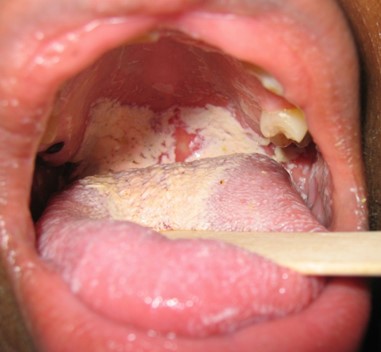A school nurse is assessing a child for pediculosis capitis. Which of the following manifestations should the nurse recognize as an indication of this condition?
Itching and scratching of the head.
Firmly attached white particles on the hair.
Thick yellow crusted lesion on a red base.
Patchy areas of hair loss.
The Correct Answer is B
The correct answer is choice b. Firmly attached white particles on the hair.
Choice A rationale:
Itching and scratching of the head are common symptoms of pediculosis capitis, but they are not definitive indicators. Itching can be caused by various other conditions such as dandruff or allergies.
Choice B rationale:
Firmly attached white particles on the hair, known as nits, are a definitive sign of pediculosis capitis. Nits are lice eggs that stick to the hair shafts and are difficult to remove.
Choice C rationale:
Thick yellow crusted lesions on a red base are more indicative of impetigo, a bacterial skin infection, rather than pediculosis capitis.
Choice D rationale:
Patchy areas of hair loss are typically associated with conditions like alopecia areata or fungal infections such as tinea capitis, not pediculosis capitis.
Nursing Test Bank
Naxlex Comprehensive Predictor Exams
Related Questions
Correct Answer is B
Explanation
The nurse should suspect candidiasis, also known as oral thrush.
Candidiasis is a fungal infection that can occur in the mouth and is characterized by the presence of a white, milky plaque that does not come off with rubbing.
The child’s use of antibiotics, immunosuppressants, and corticosteroids can increase the risk of developing candidiasis.
Choice A is incorrect because dermatitis is an inflammation of the skin and
would not present as a white plaque in the mouth.
Choice C is incorrect because herpes simplex typically presents as painful blisters or sores in the mouth.
Choice D is incorrect because squamous cell carcinoma typically presents as a firm, painless growth, or ulcer in the mouth.

Correct Answer is B
Explanation
The correct answer is choiceb. Firmly attached white particles on the hair.
Choice A rationale:
Itching and scratching of the head are common symptoms of pediculosis capitis, but they are not definitive indicators. Itching can be caused by various other conditions such as dandruff or allergies.
Choice B rationale:
Firmly attached white particles on the hair, known as nits, are a definitive sign of pediculosis capitis.Nits are lice eggs that stick to the hair shafts and are difficult to remove.
Choice C rationale:
Thick yellow crusted lesions on a red base are more indicative of impetigo, a bacterial skin infection, rather than pediculosis capitis.
Choice D rationale:
Patchy areas of hair loss are typically associated with conditions like alopecia areata or fungal infections such as tinea capitis, not pediculosis capitis.
Whether you are a student looking to ace your exams or a practicing nurse seeking to enhance your expertise , our nursing education contents will empower you with the confidence and competence to make a difference in the lives of patients and become a respected leader in the healthcare field.
Visit Naxlex, invest in your future and unlock endless possibilities with our unparalleled nursing education contents today
Report Wrong Answer on the Current Question
Do you disagree with the answer? If yes, what is your expected answer? Explain.
Kindly be descriptive with the issue you are facing.
